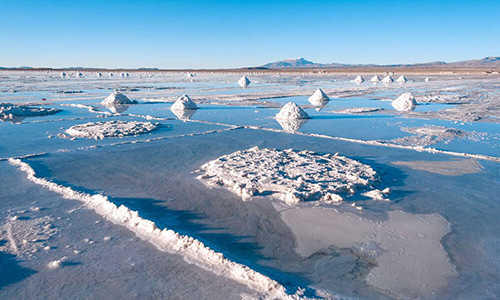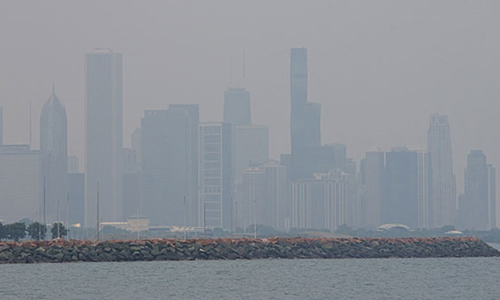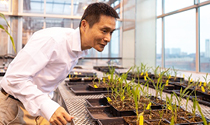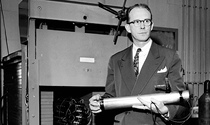|
|
|
|
| |
Welcome to the August edition of µChicago, which brings the top science stories from across the University right to your inbox. Read on to discover how UChicago researchers are making pivotal discoveries in the fields of molecular engineering, climate science, psychology, and medicine. |
|
| |
|
|
|
| |
Fueling the future—with water? |
|
| |
|
|
|
|
|
| |
| |
|
|
| |
Image: Geothermal brines like the Uyuni Salt Flats in Bolivia provide a valuable source of lithium and other essential materials. (Shutterstock/Ksenia Ragozina) |
|
| |
|
|
|
|
| |
|
|
|
| |
New ways to extract resources from water could expand supply chains for rare elements like lithium. Scientists at Argonne National Laboratory are exploring oceans, aquifers, and even wastewater to source these essential materials, fueling carbon-free technologies such as electric vehicle motors and nuclear reactors. Read more.
|
|
| |
|
|
|
|
|
| |
Memories, microbes, molecules |
|
| |
|
|
|
| |
|
|
|
| Truth in translation: A study by the Multilingualism and Decision-Making Lab and the Memory Research Lab—both at UChicago—proposes that people are less suggestible to false memories when communicating in their second language. |
|
|
|
| |
|
|
|
|
|
|
|
|
|
| |
|
|
|
| Tight squeeze: New research on cell growth revealed that cells can regulate their size—a promising discovery for the future of cancer research and bioengineering. |
|
|
|
| |
|
|
|
|
|
|
|
|
|
| |
| |
|
|
| |
Image: After a series of Canadian wildfires, Chicago experienced days of poor air quality due to the traveling smoke. (UChicago Medicine website) |
|
| |
|
|
|
|
| |
|
|
|
| |
It’s a summer of historic weather in Chicago, exacerbated by weeks of residual pollution from Canadian wildfires directly to the north. Geophysical scientist Elisabeth Moyer speaks to WBEZ Chicago about the city’s compounding air quality issues—which show how unpredictable the consequences of climate change can be. |
|
| |
|
|
|
|
|
|
|
| |
Op-ed on Oppenheimer: Rachel Bronson, president and CEO of the Bulletin of the Atomic Scientists, asks us to reflect on the blockbuster film by recognizing the consequences of scientific innovation and how we can all help prevent future tragedies. |
|
| |
|
|
|
|
|
| |
| |
|
|
| |
Crisis and opportunity:
Read about UChicago Medicine researchers working to solve human health challenges caused by the climate crisis.
|
| |
|
|
|
| |
The Day Tomorrow Began:
Learn about the history of radiocarbon dating, developed on the UChicago campus in the late 1940s.
|
| |
|
|
|
|
|
|
| |
|
|
|
|
|
| |
| |
Visit the Alumni & Friends website for stories, podcasts, and other features, curated for you on UChicago Review. Create an account for a more personalized experience.
|
|
|
|
| |
|
|
|
|
| |
| |
Sign up to receive µChicago monthly. |
|
|
|
| |
|
|
|
|





